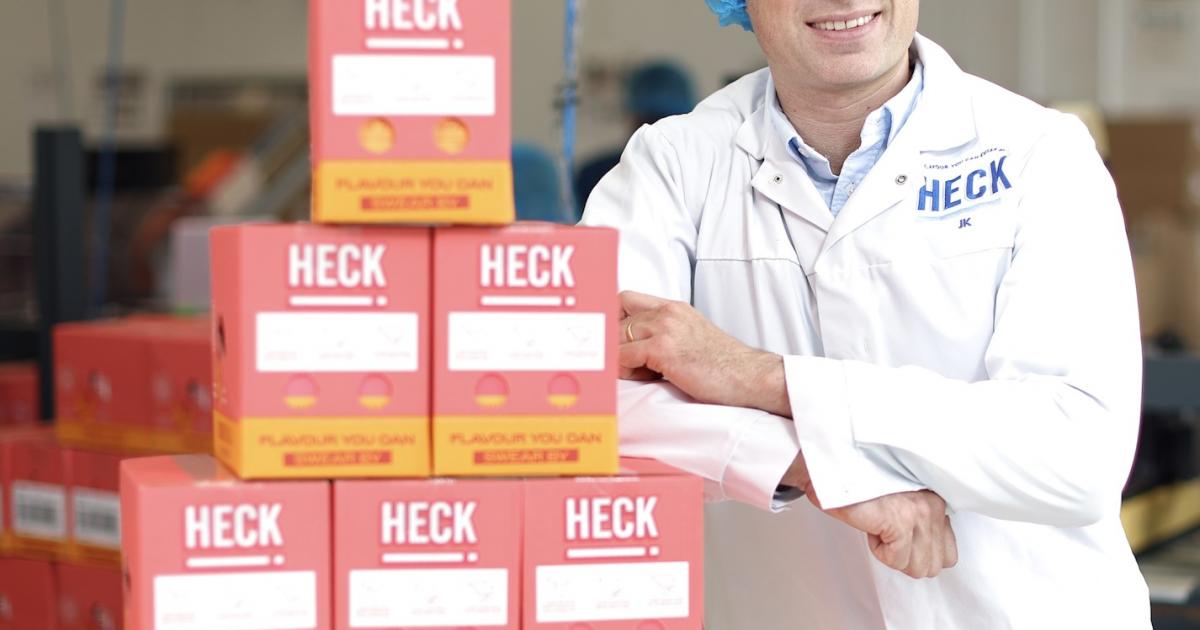The government’s Extended Producer Responsibility (EPR) scheme came into force this week, which sees the cost of collecting and recycling household packaging waste shift from local councils to the firms that produce it.
The policy aims to encourage sustainability but food industry leaders say it will drive up prices for consumer and disproportionately affect SMEs who have already invested in recyclable materials.
Among them, Jamie Keeble of Bedale sausage company HECK! who says EPR will impose £150,000 in extra costs on HECK!, despite all of its sleeves and plastic trays are already recyclable.
Jamie said: “We’re supportive of efforts to improve recycling.But this is a one-size-fits-all tax that doesn’t reward businesses that are already doing the right thing. These charges don’t vanish – they end up in the price of the product. Ultimately, it’s the consumer who will be footing the bill.”
The Food and Drink Federation (FDF) says the EPR scheme will cost UK producers around £1.1bn a year, with much falling on SMEs.
HECK!, which employs hundreds locally, is among a growing number of firms calling on the Treasury to rethink the scheme or introduce exemptions for those already meeting environmental packaging standards.
The warning comes amid ongoing concerns over the cost of living, with food inflation set to reach 5.7% this year, according to the FDF. Rising input costs – including packaging, logistics and labour – are already hitting the sector.
Mr Keeble said that food manufacturers are facing a “quadruple whammy” of cost pressures, including: New EPR recycling fees, the existing Plastic Packaging Tax, Rising National Insurance contributions and a higher National Minimum Wage
“We’ve invested £1 million in automation over the past 18 months and have a further £2.5Million planned – our consumers shouldn’t pay for inefficiencies,” he continued.
The company also said it currently has 15 skilled vacancies unfilled, due to a shortage of workers in the region – an issue that many manufacturing firms across the country are facing.
The food sector is now urging the government to consider a more targeted approach to environmental regulation – one that supports businesses investing in sustainable practices, rather than penalising them.
Jamie said: “There should be exemptions or incentives for those already using recyclable packaging.”
With the party conference season underway, business leaders are calling on the Chancellor to prioritise pro-growth tax reform and investment in skills, rather than imposing blanket charges that threaten to fuel inflation and hold back small firms.
Jamie added: “British food manufacturers are the backbone of the economy. We want to grow, hire more people and continue leading the way on sustainability, while continuing to deliver great tasting food.”
